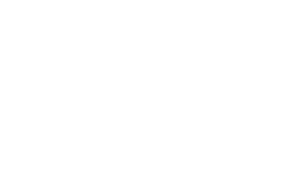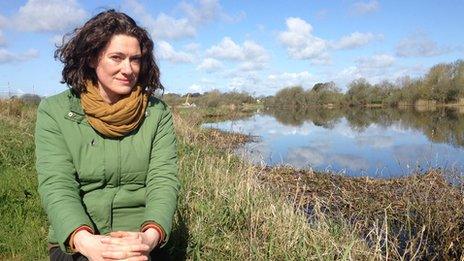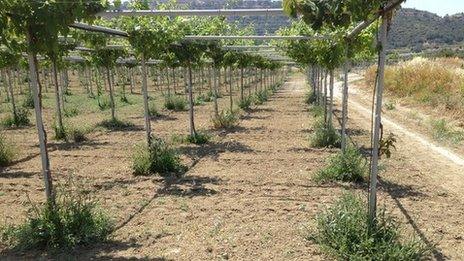Resistance to EU green farming plan
- Published
How green will Europe be after CAP reform?
Take a tour round the fields of Europe and it is easy to see why plans to oblige farmers to protect the environment are so very problematic.
The Commission wants farmers to earn 30% of their main subsidy by safeguarding pastureland, making space for wildlife and diversifying their crops.
The reform is designed to be simple to understand and hard to cheat (some would say that is the antithesis of the Common Agricultural Policy in general).
But in a continent of hugely varied landscapes, climates, soil types and agricultural systems it is inevitable that a one-size-fits-all reform will be resisted, especially from politicians under pressure from farmers who’ll lose support to which they have become accustomed.

The Commission wants to incentivise farmers to protect wildlife
What is more, the Commission’s proposals have provoked a much broader debate about what the EU’s £50bn annual farm subsidies are really for.
Some member states are fighting to return towards rewards for production – a system which at its nadir distorted food markets and created milk lakes and butter mountains.
The production debate is fierce in Ireland, which holds the EU Presidency and which aspires to conclude the reform by the end of June. Politicians there want to increase dairy production by 50% to help their battered economy.
But the Commission’s proposals would reward productive and unproductive dairy farmers equally for keeping their pastures intact. That would mean a redistribution of subsidies away from intensive farmers, who are currently subsidised more than unproductive ones.
Joe Parlon is a dairy farmer in County Offaly, and spokesman for the Irish Farmers’ Association. He agrees with protecting the environment, but says rewarding the farmers who produce most food is essential.
“Production is vitally important for Ireland as a country,” he told me. “Farmers are an endangered species. A lot of farmers are not making big profits and if you take the funding away from people producing they will go out of business."
It is clear from meeting Simon Coveney, the Irish Agriculture Minister leading EU negotiations, that this view enjoys some support at the highest level.
“This is about how Europe produces food for itself, and how we impact on global security issues in the future,” he said. "In my view the biggest test of my generation as decision makers and policy makers will be how we feed the world without destroying the planet.”

Anja Murray from Birdwatch says politicians need to up the ante
Environmentalists are unhappy at this turn of events. They favour food production too – but not at the expense of the environment. Anja Murray from Birdwatch in Ireland says the Commission’s plans were too weak to start with, given the scale of wildlife losses. Some bird species are down nearly 90% over the past few decades.
On a bewitchingly beautiful morning we rowed together to the tiny Inishee Island on Ireland’s River Shannon. It has never been ploughed, never sprayed.
Cows are swum across the water for summer grazing in small numbers, and this sort of low-intensity stocking allows locally endangered lapwings to thrive. She says farmers must do more to protect this sort of low-intensity farming and urges politicians to make sure that subsidies reward “greening”.
“We’re seeing a billion euros a week paid to farmers to do very little, to be honest. We need to really up the ante. What we’re asking is this: it’s public money and it has to be paid in exchange for public goods.” From the environmentalist viewpoint "public goods" means protecting wildlife.
In Cyprus I saw another example of opposition to greening plans. Currently farmers collect their subsidies even if they breach environmental laws – by, say, dumping slurry in waterways.
The Commission wants farmers to lose subsidy if they break laws, but some governments are resisting, under pressure from the farm lobby.

More profitable alternatives are available to farmers, but some are deterred by short-term expense
Cypriot farmers, for instance, are being urged to pump less water from aquifers for irrigation. Some aquifers are so over-abstracted that seawater is creeping into underground rocks.
Christos Zoumides, a water specialist from the Cyprus University of Technology, told me: “The problem in the Mediterranean is we are dealing with a peak water situation where demand exceeds the available supply. We have to have regulation on water if we want to keep farming in this environment.”
As Georgios Theophanous, a successful Cypriot farmer demonstrates, it is technically possible to produce grapes with one-sixth as much water using a drip irrigation system.
But it requires ripping up traditional vineyards and replanting a crop that is suitable for a trellis. It is profitable in the long term but expensive in the short term; and he says some older farmers simply cannot make the change. Cyprus and some other Mediterranean nations are refusing to agree new rules on water.
Meanwhile some other major environmental issues – like soil erosion – may be almost ignored by the final EU greening deal.
Jane Rickson, professor of soil erosion at Cranfield University, told me: “Soil erosion is a big issue in some areas. The problem is that we can’t be sure how big it is because we don’t have the data – and it doesn’t look as though anyone is prepared to pay for the data. That’s a concern because some areas are clearly losing a lot of soil.”
There are a few weeks to go to meet the CAP reform deadline. Simon Coveney, who is from a farming family in a farming constituency, warns that environmentalists' expectations must be “realistic”. There’s always another CAP reform in another 10 years, he says.
It looks as though the reform will prove a lighter shade of green.
Follow Roger on Twitter, external.
Watch Roger Harrabin's full report on BBC Newsnight on Tuesday 14 May 2013 at 10.30pm on BBC Two and then afterwards on the BBC iPlayer.
- Published20 March 2013
- Published13 March 2013
- Published12 February 2013